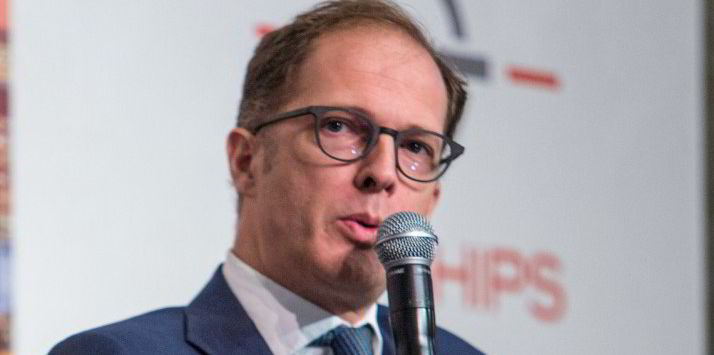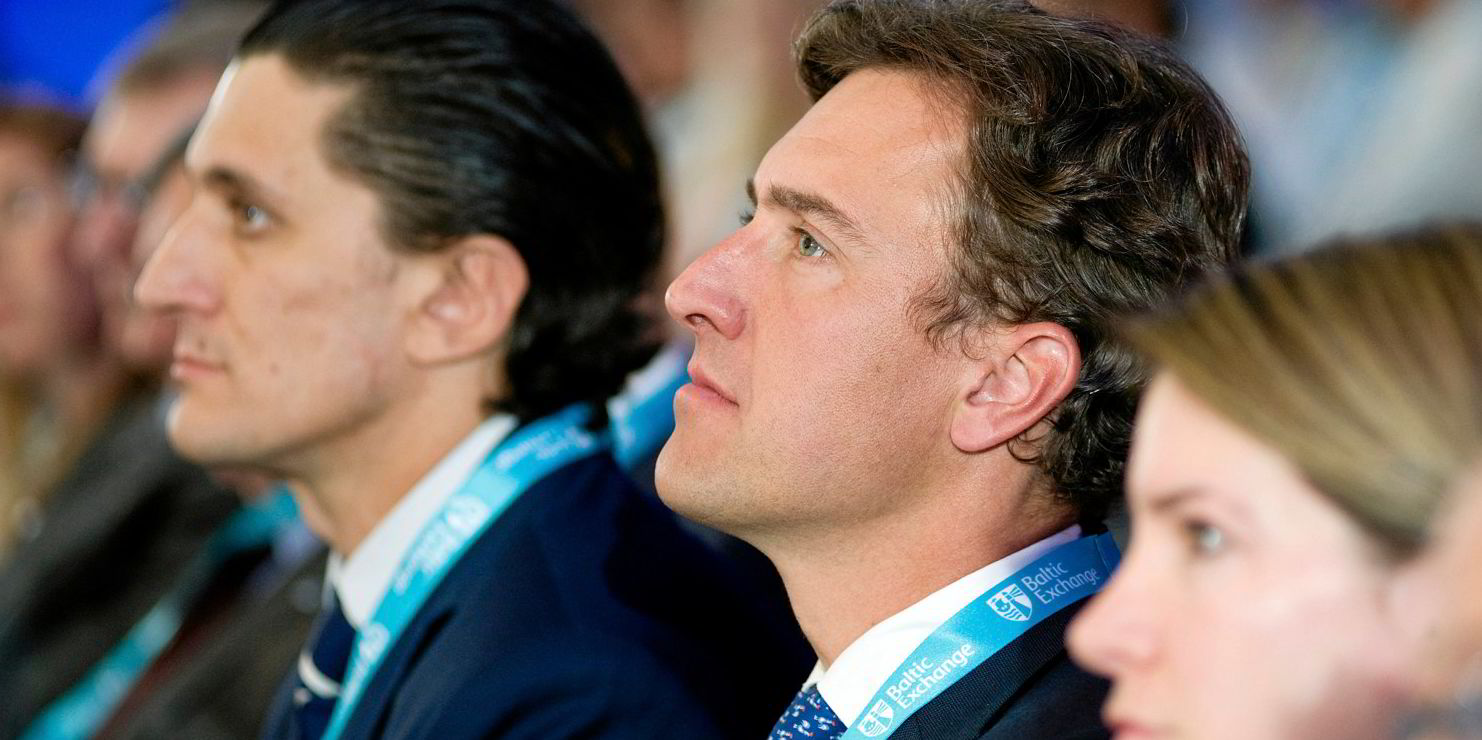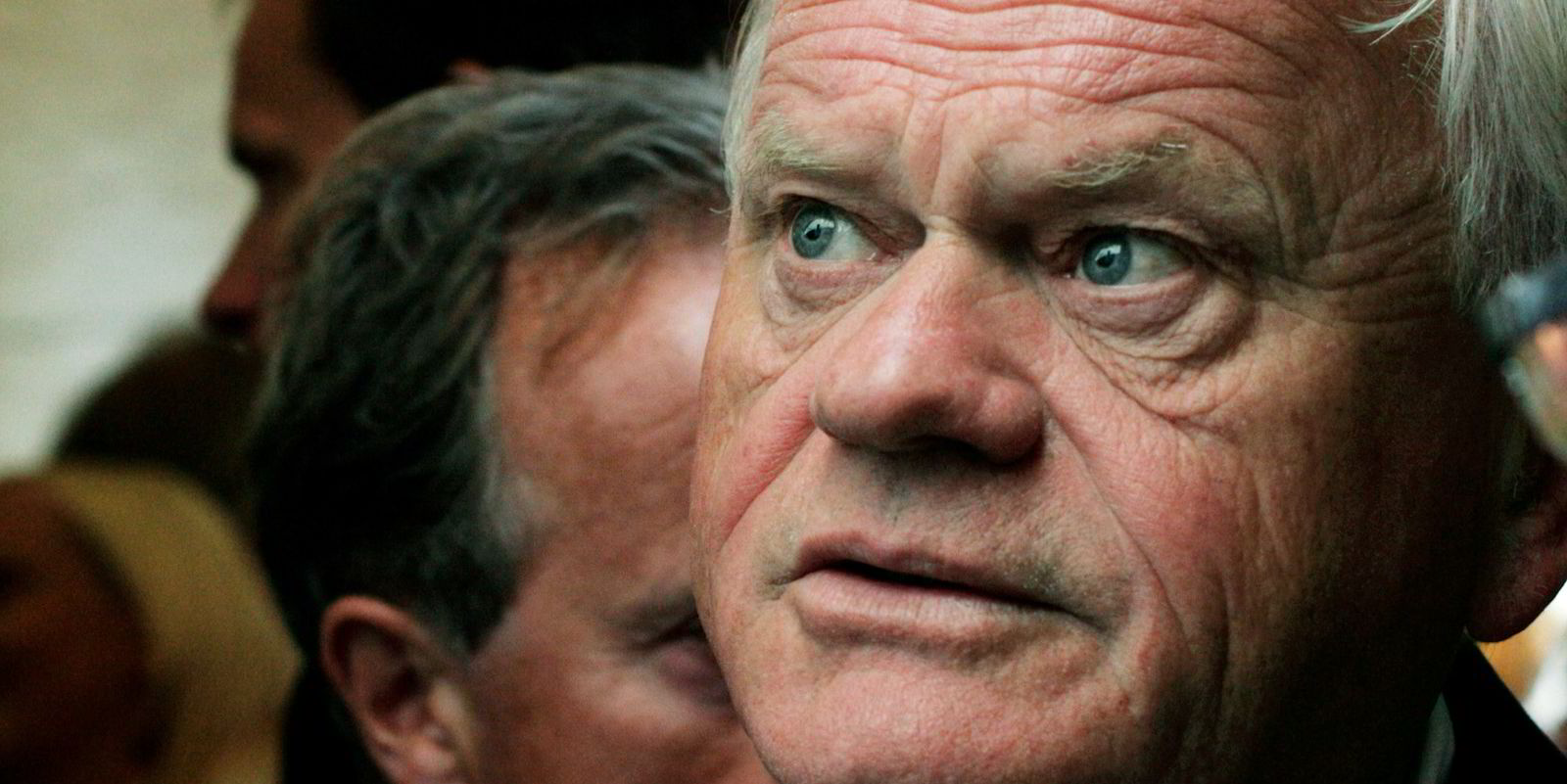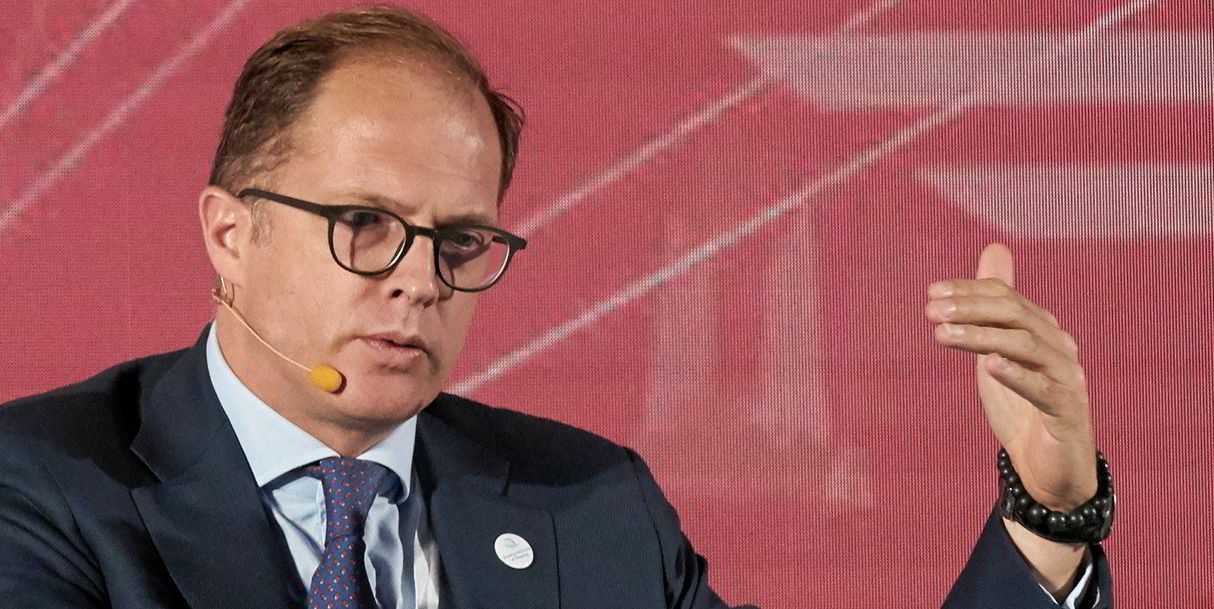Does the Saverys family, in its proposal to push Euronav towards green technology rather than a merger with Frontline, want to do away with its tankers quickly?
The answer depends on your definition of “short term”.
Euronav has told shareholders ahead of a key vote in its annual general meeting (AGM) that a proposal by Saverys-controlled Compagnie Maritime Belge (CMB) to merge Euronav with clean fuel company CMB.Tech involves an intention to cash in on the shipowner’s tanker fleet to fund a move to hydrogen and ammonia fuelling.
CMB envisages a deal that would be “followed by the monetisation of Euronav’s existing tanker fleet in the short term and a use of the proceeds to fund the development of CMB.Tech”, Euronav said in early May.
CMB declined to comment on the Euronav statement.
But a source with knowledge of CMB’s position said its press release and interviews about its opposition to the Frontline deal have “never said anything about a quick sell-off”.
However, Euronav pointed to an interview in Tijd, a Belgian news publication, in which CMB chief executive Alexander Saverys acknowledged wanting to sell off the New York and Brussels-listed owner’s tankers, to replace them with hydrogen and ammonia-fuelled ships.
“This can be done over a period of five to 10 years,” Saverys said in the April interview.
He said the plan could take advantage of a few good years ahead in tanker markets to help fund green shipping ambitions.
Despite the reference to a five to 10-year period, a “quicker timetable has been the inference”, said Euronav communications head Brian Gallagher.
In the interview, Saverys pointed to the gradual transition of CMB, parent of bulker owner Bocimar, from shipping coal to use the proceeds from operations and vessel sales on green shipping.
“We want to do this gradually, but in an intelligent way,” he told Tijd of the proposed Euronav tanker sales.
Euronav shareholders are to vote on 19 May over a slate of board members put forward by the company and a competing slate of Saverys candidates.

Antwerp-based Euronav believes the Saverys’ proposed merger is unattractive because it would be dilutive and turn a mature tanker owner into a speculative, early-stage company with more diverse, capital-intense interests, including a green hydrogen production plant in Namibia.
The Saverys, who have built up the largest shareholding in Euronav, see the proposed merger with Frontline to create a crude tanker titan as a move deeper into oil.
“What we are proposing is to get out of oil to invest in hydrogen and green ammonia,” Alexander Saverys told Belgian newspaper Le Libre, in another article that Euronav points to as proof of CMB’s intentions.
This month’s AGM is the first key hurdle for approval of the $4.2bn Frontline deal, which will require a subsequent vote to move forward.
“Although the potential Frontline transaction remains in ‘term sheet’ status, the outcome of the AGM shareholder vote one week from today will dictate whether this transformative deal can be brought to fruition,” Evercore ISI analyst Jonathan Chappell said on Thursday.
Read more
- Streetwise: Call it International Seaways or OSG, John Fredriksen has seen this pill before
- Euronav yet to decide crucial Frontline merger vote ‘hurdle’ percentage
- Euronav positioned for ‘next tanker cycle’ as ship sales reduce loss
- Roll up, roll up for the battle royal set to rock Euronav
- Green Seas: The tanker ESG dilemma plays out in Saverys’ Euronav election bid






